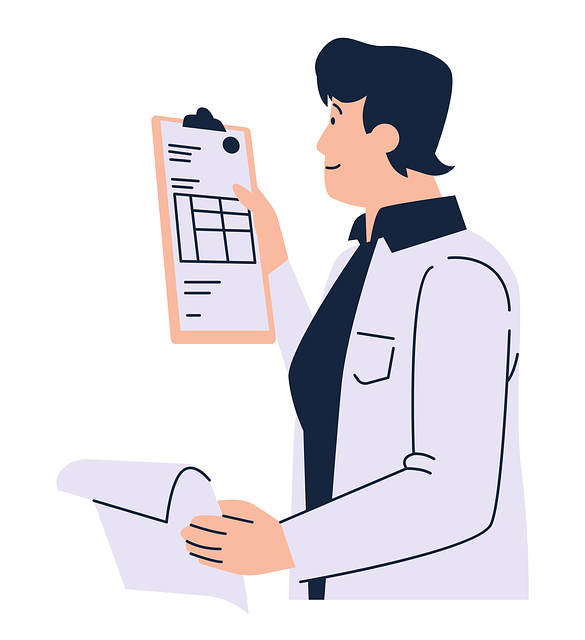Liability insurance is a critical shield for businesses in transportation and automotive sectors, protecting against financial burdens from vehicle-related incidents. It goes beyond repair costs, covering legal fees, medical expenses, and potential settlements. For professionals, like mechanics and service providers, Professional Auto Liability Insurance offers enhanced protection against negligence claims. The ideal coverage amount depends on business operations, fleet size, historical claims, and vehicle types. Understanding policy exclusions and limitations is vital for adequate protection. Liability insurance is essential for risk management, offering peace of mind, legal defense, and financial security against lawsuits and damages. Prompt claim filing initiates a streamlined process with an adjuster, aiming for fair resolutions. Real-world cases highlight its value in averting significant financial strain and preserving business reputations.
“In today’s dynamic business landscape, professional auto liability coverage is an indispensable component for risk management. This comprehensive guide delves into the intricacies of liability insurance, elucidating its significance for businesses navigating bustling markets. We explore key components, diverse policy options, and the art of choosing adequate protection.
From understanding common exclusions to deciphering the claims process, this article empowers business owners to make informed decisions. Discover real-world case studies, unveiling the tangible impact of liability coverage in mitigating risks and ensuring operational continuity.”
Understanding Professional Auto Liability Coverage: What It Is

Professional Auto Liability Coverage is a crucial aspect of insurance for businesses involved in transportation and automotive services. This type of liability insurance protects against claims and damages related to accidents or incidents that occur while operating business vehicles. It’s not just about covering the cost of repairs; it extends to legal fees, medical expenses, and potential settlements or judgments against your company.
In essence, this coverage shields businesses from financial loss in the event of a liability claim. This is especially important as auto-related incidents can lead to significant legal repercussions and monetary obligations. Understanding and securing appropriate Professional Auto Liability Coverage can help businesses mitigate these risks and ensure their financial stability in the face of unforeseen events.
Why Is Liability Insurance Important for Businesses?

Liability insurance is a cornerstone of risk management for any business, especially those in industries where accidents or errors can lead to significant legal consequences and financial losses. It serves as a safety net, protecting businesses from the high costs associated with lawsuits, medical expenses, and other claims that may arise from their operations. In today’s world, where businesses face increasing legal scrutiny and consumer expectations for accountability, having liability insurance is not just advisable; it’s essential.
For instance, a business providing auto services or transportation might face claims if an accident occurs during their operation. Liability insurance steps in to cover the damages, legal fees, and potential settlements, ensuring the business can navigate these challenges without facing insurmountable financial strain. By investing in liability insurance, businesses demonstrate their commitment to customer safety and peace of mind, fostering trust with clients and stakeholders alike.
Key Components of a Comprehensive Auto Liability Policy

A comprehensive auto liability policy is designed to protect vehicle owners and operators from financial loss in the event of an accident or legal claim. The key components of such a policy include several crucial elements that ensure thorough coverage. First and foremost, liability insurance covers damages arising from bodily injury or property damage caused by the insured’s vehicle. This includes medical expenses for injured parties and repairs or replacement of damaged property.
Additionally, comprehensive policies often include coverage for legal fees associated with defending against lawsuits related to accidents. They may also extend protection against unforeseen events like natural disasters or vandalism. These features make a comprehensive auto liability policy an indispensable safeguard for anyone on the road, providing peace of mind and financial security in case of unexpected incidents.
Different Types of Auto Liability Insurance Options

There are several types of liability insurance options available for professionals in the auto industry, each catering to distinct needs. General Liability Insurance is a fundamental coverage that protects against common risks associated with operating an automotive business. This includes claims related to property damage, personal injury, and legal expenses arising from accidents or incidents on your premises. For example, if a client sustains an injury while testing a vehicle on your lot, this insurance can help cover medical bills and legal fees.
Additionally, Professional Auto Liability Insurance is tailored for mechanics, repair shops, and other service providers. It goes beyond general liability by covering claims of negligence or malpractice in auto-related services. This type of insurance is crucial for businesses that offer specialized repairs, diagnostics, or custom modifications, as it protects against potential errors or omissions that could lead to financial loss or legal repercussions.
How to Choose the Right Level of Coverage for Your Business

Selecting the appropriate level of Professional Auto Liability Coverage is a critical step in safeguarding your business against potential risks and financial losses. The right coverage amount depends on several factors unique to your company, including the nature of your operations, fleet size, and historical claims experience. It’s essential to strike a balance between adequate protection and cost-effectiveness.
Start by evaluating the type and frequency of vehicles used in your business. High-risk activities or specialized vehicles may require higher limits. Assess your company’s financial health and available resources to handle potential liabilities. Consulting with insurance professionals can provide valuable insights into industry standards and tailored recommendations. Remember, the right Liability Insurance should offer peace of mind, ensuring that your business is prepared for unforeseen events while optimizing cost efficiency.
Common Exclusions and Limitations in Auto Liability Policies

Liability insurance policies for cars typically have several exclusions and limitations that policyholders should be aware of. These can include situations where the policy does not cover damage or injuries resulting from certain types of incidents, such as acts of war, terrorism, or natural disasters. Additionally, some policies may exclude liability for damage caused by a driver who was under the influence of drugs or alcohol, or for accidents that occur outside of the stated geographical area covered by the policy.
Another common limitation is the maximum amount of compensation the policy can provide. Even if a claim exceeds this limit, the insurance company is legally obligated to pay up to the specified cap. This is why it’s crucial to understand the terms and conditions of your liability insurance policy, so you’re aware of what’s covered and what isn’t, ensuring adequate protection for your auto-related risks.
The Role of Liability Insurance in Risk Management Strategies

Liability insurance plays a pivotal role in any risk management strategy for professionals, particularly those operating in sectors like auto repair and services. It acts as a safety net, protecting businesses from potential financial losses due to claims of negligence, property damage, or personal injury stemming from their operations. By purchasing liability coverage, businesses can safeguard their assets and ensure long-term sustainability, even in the face of unforeseen incidents.
This type of insurance provides peace of mind by covering legal expenses and damages awarded in lawsuits. It’s a proactive measure that enables professionals to focus on delivering quality services without constantly worrying about potential risks. With liability insurance, businesses can navigate complexities, manage liabilities, and maintain a positive reputation, ultimately fostering trust with their clients and ensuring business continuity.
Claims Process: What to Expect When Filing a Claim

When filing a claim under your professional auto liability insurance, understanding the claims process is crucial. The first step involves notifying your insurance provider as soon as possible after an incident occurs. This prompt action ensures a smoother process and allows for a thorough investigation. Your insurer will then assign a claims adjuster who will gather information about the incident, including details from witnesses and any relevant documentation.
The adjuster will assess the damages and determine liability, which is a key aspect of your liability insurance coverage. They will communicate with both you and the claimant to facilitate negotiations and settlement discussions. Throughout this process, transparency is essential; provide all requested information honestly and accurately. Keep in mind that your insurer aims to protect both your interests as the policyholder and those of the claimant, ensuring a fair resolution while adhering to legal requirements.
Case Studies: Real-World Examples of Liability Coverage in Action

Liability insurance plays a crucial role in protecting professionals from unforeseen legal issues and financial losses. To understand its practical application, let’s explore some real-world examples. One such case involves a prominent auto repair shop that, despite having skilled mechanics, was sued for property damage caused during an oil change. The shop had comprehensive liability coverage which not only covered the legal fees but also settled out of court, protecting their business from significant financial strain.
Another instance highlights the importance of this coverage for a fleet management company. One of their vehicles was involved in an accident while under rental, causing injuries to the passenger. The company’s liability insurance stepped in, covering medical expenses and legal costs associated with the incident. This allowed them to maintain their reputation and continue operations without the financial burden often associated with such incidents.
